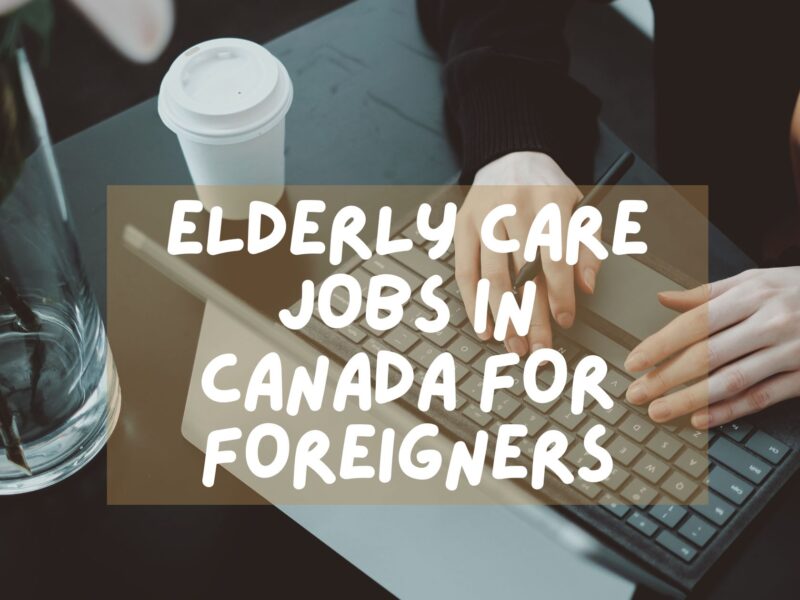As an employer in Canada, I have seen firsthand the incredible value that immigrants bring to the workforce, particularly in the field of elderly care. With our aging population, the demand for compassionate and skilled caregivers is skyrocketing. Hiring foreign workers not only fills crucial gaps in our healthcare system but also enriches our communities with diverse perspectives and experiences. It’s a win-win situation, and I’m excited to share insights into how to navigate this landscape effectively.
When it comes to elderly care jobs, the opportunities are vast, but so are the challenges. Understanding the unique skills required, the regions that offer competitive wages, and the various pathways for immigrants can make the hiring process smoother and more rewarding. In this blog post, I’ll break down everything you need to know about hiring immigrants for elderly care roles, from the essential skills they should possess to the best companies and resources available. So, let’s dive in!
Entry-Level Skills and Experience Required
When hiring for elderly care positions, it’s crucial to identify the key skills and experiences that make a candidate stand out. For entry-level roles, employers should look for candidates with a genuine passion for caregiving. While formal qualifications can be beneficial, many immigrants come with valuable life experiences that translate well into this field.
Essential skills include strong communication abilities, empathy, and patience. Caregivers should also possess basic knowledge of first aid and CPR, as these skills can be lifesaving. Additionally, familiarity with the needs of elderly individuals, such as mobility assistance and medication management, is essential. Many employers are willing to provide training to candidates who show enthusiasm and a willingness to learn, making it easier for newcomers to break into the industry.
Regions with the Highest Payment Structures
When considering where to hire, it’s important to know which regions in Canada offer the best pay for elderly care jobs. Here are the top five provinces where you’ll find the most competitive payment structures:
- Ontario: This province is a bustling hub for elderly care, with wages ranging from CAD 18 to CAD 25 per hour. Urban centers like Toronto often pay on the higher end due to the cost of living.
- British Columbia: Caregivers in BC can expect to earn between CAD 20 and CAD 28 per hour, especially in cities like Vancouver where the demand for skilled workers is high.
- Alberta: With a strong economy, Alberta offers salaries ranging from CAD 19 to CAD 27 per hour. The combination of good pay and a growing job market makes it an attractive option for immigrants.
- Quebec: Although salaries here are slightly lower, ranging from CAD 16 to CAD 24 per hour, the province offers a unique cultural experience and a lower cost of living in many areas.
- Nova Scotia: This province is emerging as a hotspot for elderly care jobs, with wages between CAD 17 and CAD 23 per hour. The friendly communities and beautiful landscapes are an added bonus for caregivers.
Salary Expectations for Immigrants
Understanding salary expectations is crucial for both employers and prospective employees. Here’s a breakdown of the average hourly wages for elderly care jobs across different provinces:
| Province | Hourly Wage Range |
|---|---|
| Ontario | CAD 18 – CAD 25 |
| British Columbia | CAD 20 – CAD 28 |
| Alberta | CAD 19 – CAD 27 |
| Quebec | CAD 16 – CAD 24 |
| Nova Scotia | CAD 17 – CAD 23 |
In summary, while salaries can vary significantly across provinces, the opportunities for immigrants in the elderly care sector are promising. Employers should be prepared to offer competitive wages to attract the best talent, especially in regions with higher living costs.
Companies Hiring Elderly Care Jobs in Canada for Foreigners
If you’re looking to hire immigrant caregivers, consider partnering with reputable companies that are already established in the elderly care sector. Here are a few organizations actively hiring:
- Comfort Keepers: They seek caregivers with a passion for elderly care and are open to training newcomers. A background in healthcare is a plus but not mandatory.
- Home Instead: This company values compassion and reliability. They offer training programs, making it easier for immigrants to transition into caregiving roles.
- Visiting Angels: They prioritize strong interpersonal skills and a willingness to learn. Experience is preferred but not essential, as they provide comprehensive training.
- Amica Senior Lifestyles: They require experience in elderly care or hospitality and are committed to helping immigrants integrate into their workforce.
- Seniors for Seniors: This unique organization hires seniors to care for seniors, but they also welcome passionate individuals from diverse backgrounds.
Visa Types and Options for Immigrants
For foreigners seeking to work in elderly care in Canada, understanding the visa landscape is essential. The Temporary Foreign Worker Program (TFWP) allows employers to hire foreign workers for specific job vacancies when there are no Canadians available. Additionally, the Express Entry system is another pathway, allowing skilled workers, including caregivers, to gain permanent residency based on their qualifications and job offers.
Where to Find Elderly Care Job Opportunities
As an employer, it’s important to know where to find potential candidates. Job seekers can explore platforms like Indeed, Glassdoor, and Job Bank for listings in elderly care. Additionally, local community centers and healthcare agencies often post job openings directly on their websites, making it easier for immigrants to find opportunities.
How to Apply for Elderly Care Jobs as an Immigrant in Canada
For immigrants looking to secure a job in elderly care, the application process can be straightforward. It’s essential to tailor your resume to highlight relevant skills and experiences, focusing on any certifications and volunteer work related to caregiving. A well-crafted cover letter that showcases your passion for helping others can also make a significant difference.
Networking is another powerful tool; consider connecting with professionals in the field through social media platforms like LinkedIn or attending local job fairs. Building relationships can open doors that a simple application might not.
Conclusion
As an employer in Canada, hiring immigrants for elderly care jobs is not only a practical solution to a growing demand but also a chance to enrich our communities with diverse talents and perspectives. By understanding the skills required, the regions with the best pay, and the pathways available for immigrants, you can create a workforce that is not only capable but also compassionate. Together, we can ensure that our elderly population receives the quality care they deserve while providing meaningful employment opportunities for newcomers.










